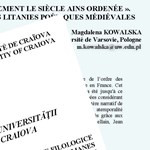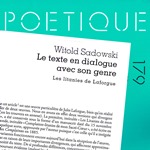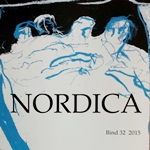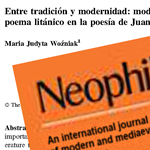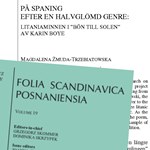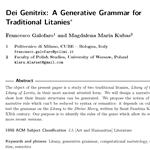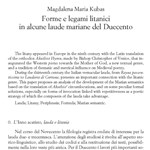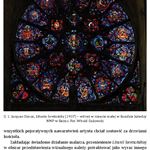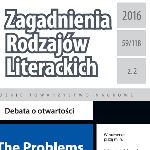Magdalena Kowalska, « Certainement le siècle ains ordenée ». Le plan des litanies poétiques médiévales, “Analele Universităţii din Craiova. Seria Filologie. Limbi şi literaturi romanice”, XIX (2015), 1. The aim of this article is to show the importance of the order of events in litanies in poetry of medieval France. This formal aspect of religious […]
